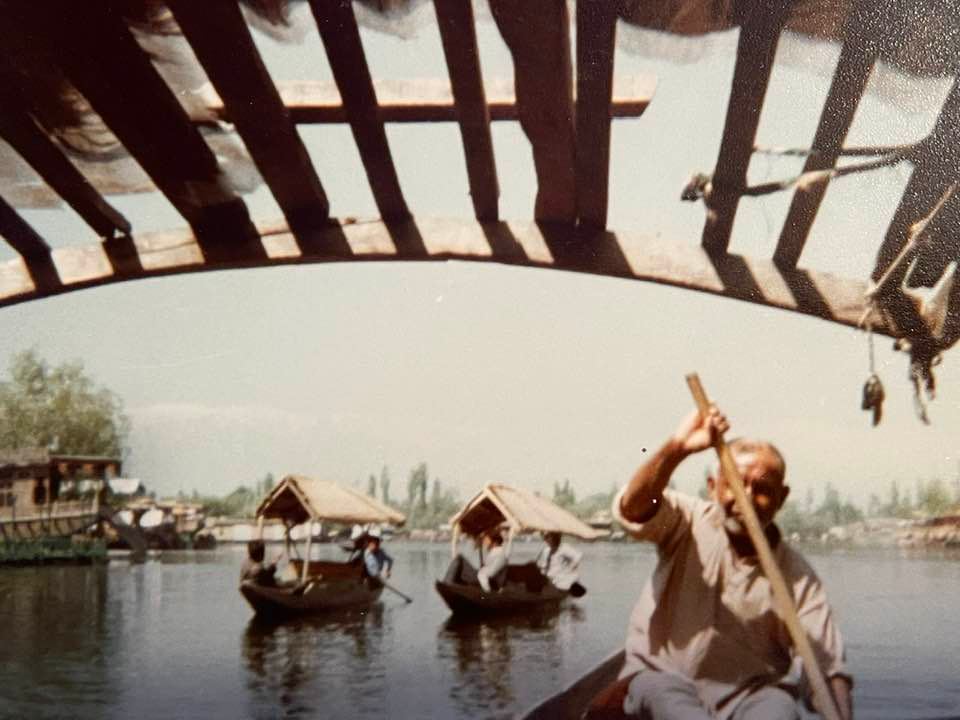FEBRUARY 22, 2022 – If I’d traveled to Kashmir to experience its natural beauty, I first had to negotiate past the many people trying to make a living off the few people like me. Like a cloud of flies, Kashmiris pestered relentlessly.
In my letter home, I describe the “shikara men” who surrounded our houseboat:
“Within a half hour of our arrival, the ‘shikara men’ arrived, poised for an attack, invasion, and conquest. They’re merchants of jewelry, furs, carpets, papier mâché, woodcarvings, and other handicrafts. They [. . .] attempt to sell their wares at outrageous prices. ‘Excuse me, sir,’ they cry out. ‘You like to buy? For you I give special price—50% discount! Come to shop,’ they persist. ‘I show you nice things. Looking is free. You are my special friend.’
“The sales pitch differs none from one merchant to the next. The stereo-typed ‘rich’ European (or worse yet, the ‘super-rich’ American) is preyed upon like a thrashing swimmer in a pool of sharks. ‘In your country you can sell this for 10 times what you pay,’ they all say. ‘You give me some money now and pay rest C.O.D.’ They push and badger and cannot learn the meaning of ‘No!’ Most are legitimate merchants, though the quality of their products must be closely examined. Haggling, of course, is the name of the game.
“Kashmiris (and Indians) are obsessed with money and they must rank as the world’s most aggressive, persistent, and obnoxious salesmen. Every damned one of them says, ‘Me no rich man, but I have rich heart. Money is not important. Friend is important and you are my friend . . . YOU LIKE TO BUY, YES?!’
“The money disease permeates all of society here. Every waiter, porter, shikara driver asks for baksheesh (tip) and no matter how much you part with, he looks disappointed and asks for more. Money motives every action, every word. Consequently, Kashmiris rarely part with the truth.”
On the next page of the letter, however, I reflected on what I’d just written. “[O]ne realizes that these people exhibit the same qualities that characterize our own Western societies. Our methods might be [different], but our objective—money and more money—is the same. Moreover, the Easterners’ acquisitiveness (and consequent aggressiveness) can be attributed to over-exposure to Western materialism.”
After another 41 years of reflection, I’d add that those aggressive merchants were motivated by something far more basic: putting food on the table, especially when the “tourist season” was as short as it was in that Himalayan region. I was an American “on vacation” among people with a tiny sliver of the resources and opportunities I took for granted. What did I expect?
Not all Kashmiris were trying to sell me something. Some suffered quietly, their immediate need too obvious to ignore. In the next post, I’ll bring to life the case of a girl in agony after red-hot cooking oil had savaged her hand. That’s when John and I—with the aid of Manzoor, as translator—paddled into action.
(Remember to subscribe to this blog and receive notifications of new posts by email.)
© 2022 by Eric Nilsson
